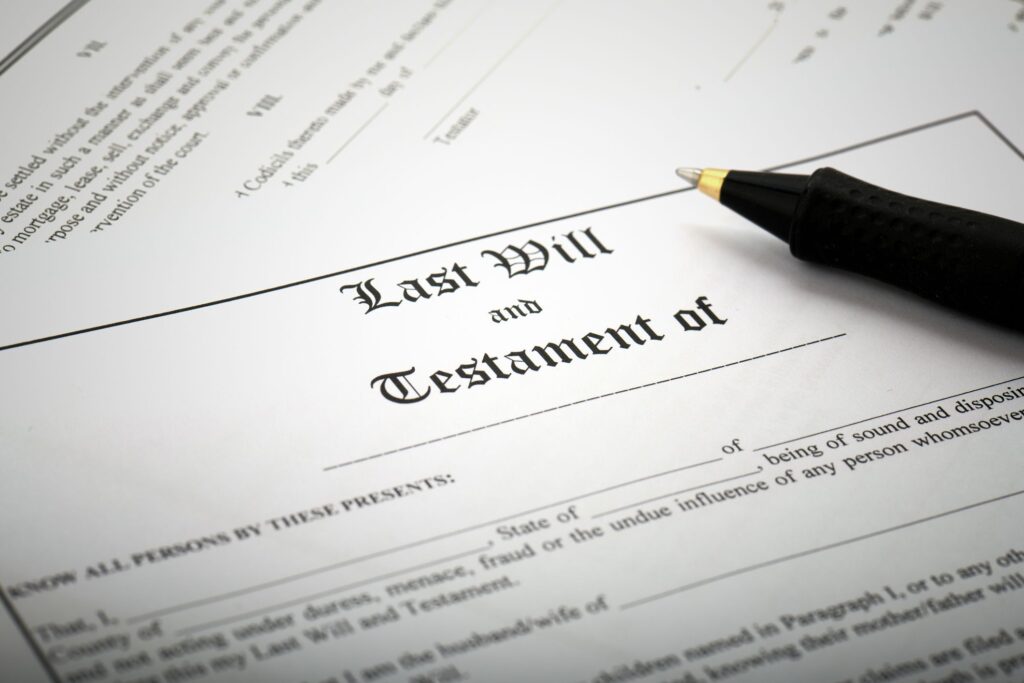Researchers say increased usage of unregulated online wills writing services could result in a rise in family disputes over a loved one’s estate.
Over the last few years, online services have grown to be more popular, especially during Covid’s lockdown periods.
The Funeral Solution Expert firm FSE (Funeral Solution Experts) conducted an analysis of 26 best online wills writers. There were several problems with the services that we were offered. Some firms, for example, offer inexpensive will writing services to clients whose affairs are straight forward and simple.
Lots of people believe their affairs are easy, but they are very complex as well as their online wills need to be rewritten at great expense. Some individuals never get the opportunity to fix ineffective online wills before they die, leaving their children to deal with hard inheritance problems at a time they may be distraught and grieving.
FSE’s co-founder Simon Cox said: “Our research indicates that 65 % of customers who rate their personal affairs as simple subsequently reveal that their affairs are complex,” it said. It means that people are creating an ever-growing bank of online wills that will be challenged after their death, he said.

Part of the issue is that many people do not realize that will writers aren’t regulated and there’s little comeback against them in case things go wrong. Solicitors, on the other hand, are highly regulated and must be insured against mistakes. What this means is you’ve legal redress in case something goes wrong, as opposed to an unregulated will writer.
According to a recent Online wills and Probate Consumer Research Report, “One of the core strengths of the main traditional providers in the sector, i.e. solicitors and law firms, is that these providers would be the option of the majority of consumers making a will,” Mr. Bush said.
“Even though the usage of legal services is an occasional one for many individuals, client loyalty is also fairly high, with many customers going back to the same law firms and also solicitors that they’ve previously used,” he said. The study strengthens the findings associated with a recent study by Will Aid, which discovered more than six out of 10 individuals prefer a competent solicitor to create their will so that they can be sure that it is done correctly.
A spokeswoman for Will Aid, stated : “Creating a will is a crucial economic planning step, but the appeal of less expensive alternatives to solicitors can suggest the document isn’t correctly written or legally binding,” it said.
Even though an off – the – shelf may seem appealing to people who are seeing the pennies, it might be a wasted money, “she said.
“It is apparent that the general public, wherever possible, prefer using a lawyer to write their will. They know that if you have a solicitor, you have the assurance that they have a valid will and that if anything goes wrong, they have the right insurance and will be able to get compensation. This might not be the situation with an unlicensed provider and definitely is not the situation in case you create your very own will.” The Law Society also urged individuals to create a will and make sure that they only employ a solicitor who is fully qualified.
The spokesperson said: “A badly drafted will can result in more troubles than no will,” the Law Society said, “so the Society recommends against using unlicensed will writers. In contrast to unregulated will writers, solicitors are subjected to strict regulation to make sure they provide the best service for their clients.
“Solicitors are unmatched in the will writing industry, because only they’ve the breadth of knowledge to think about wider implications and complicated issues, which includes tax and family law.” Is an Online will Legal?
An internet will is valid when it satisfies the requirements of the country in which the online wills be executed. Online wills are subject to specific rules in some states.
Some Australian states, for example, recognize handwritten or holographic online wills signed only by the testator, whereas some other states call for a specific number of witnesses to sign the will. It is sometimes necessary that the testator’s witnesses be individuals who are “uninterested” and won’t get the property or maybe assets in the will after the testator dies.
Some states require that the signature be signed at the conclusion of the document, whereas others permit the signature to be signed anywhere. Before you can start an online will, you need to familiarize yourself with the laws of your state.

Can I Make My Online Wills Valid?
As long as the online wills are valid, it does not matter whether it was drawn up by an attorney or was prepared online. For a will to be legitimate, it has to meet the demands of the state in which the testator lives.
In all cases, there are some fundamental rules that apply to each situation.
A is going to is valid if it meets the following conditions:
1. The intention. The person who writes the will states that it is their final will and testament and that when they die they will dispose of their property in this will.
2. A person must have A sound mind. Testamentary capacity generally means that the individual is a minimum of 18 years old and that they understand that they’re making a will. They understand exactly what assets they need to divide in the will and what it really means to leave it to somebody.
3. Executed without any fraud, duress, excessive influence or error. The person who wrote the will was not pressured or coerced into creating the will or distributing their property in a specific way.
3. Signed and date stamped. The testator and witnesses must sign and date the will.
Actually, a valid and legal will can be challenged or contested. It can be difficult for an online will to survive a contest unless the person has a small estate, with a few beneficiaries.
The distribution of the property could become more complicated due to tax issues or other financial issues. In an online will, issues such as retirement accounts, investments, and real estate owned by another individual may not be fully addressed.
If there are children involved, particularly step- children, even a seemingly simple estate can become complicated. Making a choice about a guardian and establishing a trust are crucial decisions that have a long-term impact.
Some people decide to leave specific bequests of money or items to family or friends and don’t really think about where the majority of the estate will go. Family members could be forced to ask the court to decide, with no residuary estate provision to answer the question. This is a costly and time – consuming process.

